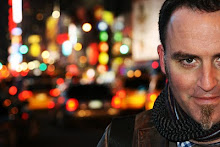Anyway, we were at The Pool to record The Blue Book, an album of songs based on a 19th Century book of liturgical Jewish music, with age-old, specific associations with the synagogue where I sing. It would be the equivalent of Hymns Ancient and Modern if Hymns Ancient and Modern hadn’t been updated for a hundred years. It’s the bane of our lives. In a quest to save paper, those canny Victorian printers filled every last inch of page with words, tonic-sol-fa notation, Hebrew transliterations and basically anything else they could cram in. The result is a glorious hot mess, which is almost impossible to sing because you simply can’t read anything!
The arrangements are pretty awful as well; filled to the brim with somewhat awkward harmonic shifts and clunky voicings. Nevertheless, the book stands as a unique collection of orthodox Jewish religious music and it feels important to immortalise some of the tunes by doing this project. Because recording equipment is banned on the sabbath in the very synagogues who still sing this repertoire, it’s actually unlikely that these compositions will ever be heard by a wider audience again without initiatives like this. Some of the melodies are both ancient and very moving.
On top of everything else, there’s actually a dearth of people equipped to perform this type of music. One must be either Jewish, Jew-ISH, or interested enough in Judaism to want to use music to facilitate worship and learn how to sing in Hebrew and Aramaic. Stylistically, it tends to suit choral scholars, whose traditions, of course, are usually Christian, so it’s a fairly exclusive club that I seem to have stumbled into!
The recording went well. There were eight singers in the choir, two per part, which is singularly exposing. One person per part, and you’ve only got to worry about tuning with everyone else, two people per part, and you’re forced to blend with the other person singing without having the security of ensemble that three or more on a part brings.
Singers are funny. There are always these huge debates in the recording studio about the minutiae of music, but woe-betide anyone suggesting that people might be singing a passage out of tune! Say that, and you’re always asked to qualify exactly what you mean. Is it a timbre thing? Is it a harmonics thing? No, we just sometimes sing duff notes. Sometimes they’re sharp. Sometimes they’re flat. Sometimes we need to focus a little more and hang on to our hats! Somebody once told me that telling a trained singer they’re singing out of tune is tantamount to criticising their technique.
Recording sessions are always slow - and you always run out of time however carefully you plan. I don’t believe I’ve ever walked away from a session feeing 100 per cent happy. But we recorded some really beautiful music which I feel incredibly proud of. I’d insisted all day that we listen to what we’d recorded, dry, with no reverb, knowing that things improve hugely when the bells and whistles are added. And sure enough, when we added reverb and listened back at the end of the day, everything sounded really rather special.
We finished at 9.30pm. Somewhat exhausted. What is with all this hot weather?

No comments:
Post a Comment
Note: only a member of this blog may post a comment.